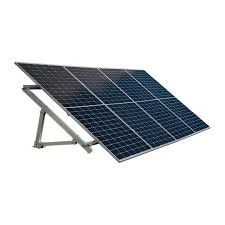Exploring the Innovative Use of Solar Air Conditioning for Sustainable Energy Solutions
The Rise of Solar AC A Sustainable Solution for Cooling Needs
As the world grapples with the challenges of climate change and rising energy costs, the demand for sustainable and energy-efficient solutions has never been more crucial. One such innovation is the solar air conditioning (Solar AC) system, which harnesses solar energy to provide cooling—a necessity in many parts of the world, especially during sweltering summer months. This article explores the concept, benefits, and potential of solar AC systems.
Solar AC systems utilize photovoltaic (PV) panels to convert sunlight into electricity, which is then used to power conventional air conditioning units or specialized solar cooling technologies. There are two main types of solar AC systems solar photovoltaic air conditioning and solar thermal air conditioning. The former uses electricity generated from solar panels, while the latter employs solar energy to produce thermal energy, which drives an absorption or adsorption cooling process.
The Rise of Solar AC A Sustainable Solution for Cooling Needs
Furthermore, solar AC systems can help mitigate the environmental impact of conventional cooling methods. Traditional air conditioning systems often rely on refrigerants that can contribute to global warming if leaked. In contrast, many solar thermal cooling systems use water or environmentally friendly refrigerants, aligning with the global push for reducing greenhouse gas emissions. By integrating solar energy into the cooling process, these systems not only provide effective cooling solutions but also promote a greener planet.
solar ac

In addition to economic and environmental benefits, solar AC systems are also characterized by their reliability and energy independence. With the increasing frequency of power outages in certain areas, solar AC can provide a much-needed solution. Homeowners and businesses can maintain a comfortable indoor environment regardless of grid instability. Moreover, the modular nature of solar technology means that systems can be tailored to meet specific cooling needs, ensuring efficient operation even as cooling demands vary throughout the day.
Despite their advantages, there are challenges to widespread adoption of solar AC. The initial installation cost can be high, and existing infrastructure may require upgrades to accommodate solar technology. Additionally, the efficiency of solar panels varies based on geographical location and weather conditions, meaning that areas with less sunlight may see less optimal performance. However, with advancements in technology and increasing financial incentives, these challenges are becoming more manageable.
As governments and organizations worldwide seek to achieve renewable energy targets, solar AC presents a viable solution for communities looking to improve energy efficiency and reduce carbon footprints. With initiatives such as tax credits, rebates, and grants, consumers are now more encouraged than ever to consider solar energy for their cooling needs.
In conclusion, solar air conditioning systems represent a significant step forward in the quest for sustainable living. By harnessing the power of the sun, these innovative systems provide an energy-efficient and environmentally friendly solution to cooling. As technology advances and the world moves towards a greener future, solar AC stands out as a practical option for achieving a balance between comfort and sustainability. Embracing solar AC not only supports individual households and businesses but also contributes positively to the planet’s health, paving the way for a cooler, cleaner future.
-
Unlocking Energy Freedom with the Off Grid Solar InverterNewsJun.06,2025
-
Unlock More Solar Power with a High-Efficiency Bifacial Solar PanelNewsJun.06,2025
-
Power Your Future with High-Efficiency Monocrystalline Solar PanelsNewsJun.06,2025
-
Next-Gen Solar Power Starts with Micro Solar InvertersNewsJun.06,2025
-
Harnessing Peak Efficiency with the On Grid Solar InverterNewsJun.06,2025
-
Discover Unmatched Efficiency with the Latest String Solar InverterNewsJun.06,2025







